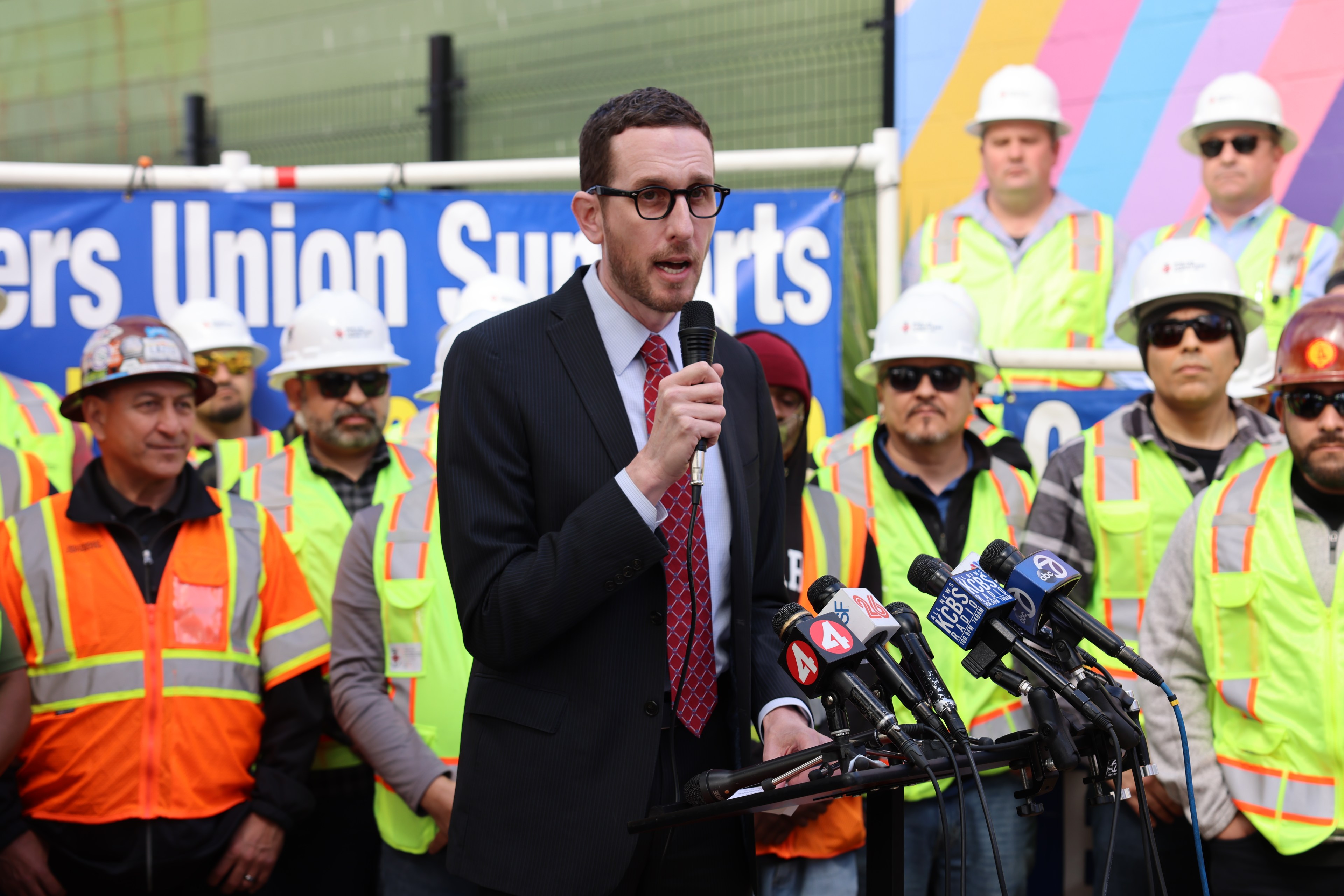State Sen. Wiener unveiled new legislation Monday that would codify a 2017 state law that simplified some housing approvals for cities lagging in meeting state-mandated production targets.
Senate Bill 423 would make permanent SB 35, which sought to streamline production of housing projects where at least 50% of the units are affordable. SB 35 is planned to sunset at the end of 2025.
SB 35 accelerates eligible housing projects by exempting them from “discretionary review” and the California Environmental Quality Act (CEQA) and by ensuring building permits are issued within three to six months of approval, depending on the project’s size.
The push for increased housing production comes as the state has tightened the screws on cities that have not complied with plans to make room for new homes every eight years, called a city’s Housing Element.
San Francisco, which just submitted its own plan to the state, is also behind on state-mandated housing production goals and has been tagged as undesirable for developers due to sky-high building costs and lengthy permitting timelines.
Statewide, SB 35 has streamlined approvals for about 12,000 new homes, nearly 75% of which are below market rate, according to Wiener’s office. In San Francisco alone, about 3,000 new homes have been approved or created under SB 35.
In addition to extending streamlining under SB 35, Wiener’s new bill loosens up labor requirements for some eligible projects.
Namely, SB 423 takes labor standards outlined by Assembly Bill 2011, which aims to make commercial real estate available for housing development, and applies it to both affordable and mixed-income housing eligible for SB 35.
Under SB 35, projects are subject to different labor provisions depending on their affordability. Those that included market-rate homes are only eligible for streamlining under SB 35 if they are constructed by a “skilled and trained” workforce, or those who have completed union-run apprenticeship programs. Housing developments that are 100% affordable are not subject to that more stringent requirement.
Advocates say that this more stringent labor provision makes it harder to find the workers necessary to build mixed-income housing. In San Francisco, 93% of the 2,000 homes built under SB 35 have been affordable, according to the city’s Planning Department.
“Why was the [100%] affordable housing side so productive, and the other [mixed-income] side wasn’t? And it really came down to the labor requirements,” said Marina Wiant, vice president of government affairs at the California Housing Consortium. “We’re trying to make a workable standard that is a higher standard.”
Wiant said that there aren’t enough “skilled and trained” workers to keep pace on state housing production goals, including for mixed-income projects.
“Now is not the time to restrict who can and can’t work on housing,” Wiant said.
Wiener’s bill does not contain the “skilled and trained” labor provision in SB 35, but would include family medical insurance, prevailing wages and contain language meant to ensure construction firms comply with insurance and wage standards for workers.
Erik Mebust, a spokesperson for Wiener, said that workers in state-approved apprenticeship programs will get “first access” to construction jobs developed under SB 35.
“[SB 423] isn’t a silver bullet; there’s no silver bullet. There’s a lot of things we have to do if we’re going to build the millions of homes that we need,” Wiener said. “But this is absolutely one of the pillar foundations in terms of helping us achieve that goal.”
